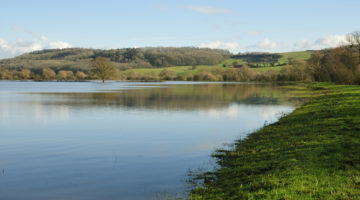
‘Great’ Britain
The suspension bridge, penicillin, first intercity railway. What do these things all have in common? Answer – they are all Great British discoveries, with varying degrees of desirable effects.
More importantly, these inventions are synonymous with a time when Great Britain powered ahead of the world using an innovative mindset by using practical solutions that resulted in elevating London as the world capital of the merchant trade. Today, we find ourselves in a position where other countries have not only caught up with us, but have actually overtaken us. This is great for the rest of the world, as it as means that economic wealth is spreading globally.
However, as more countries follow the successful British Industrial model of development, the world in which we live has become more and more polluted, and is also struggling to meet the demand for energy that is driving this change. Britain itself has unfortunately become stuck; ironically laboured by the model it had previously exploited so successfully.
How is Britain being left behind?
So, given that Great Britain had previously spearheaded human development and innovation, why are we not now the leading proponents of green energy and green network solutions? The answer simply lies with the fact that we are well behind continental Europe in decarbonising our economy. Our recycle rate still hovers at around 20% and our renewable energy sources account for less than 5% of our total energy output. Germany, on the other hand, has a renewable energy rate five times higher than ours. Therefore, we are in no position to lecture others on what we believe are the right ways to make a sustainable economy move forward.
The economy at the moment is languishing. I feel that we really need to pull out all the stops out as a nation to make sure we create the right climate for ideas and innovation to allow us to lead the world once again; this time, by leading a green economy with green energy provision and greater energy efficiency. I know we can seize the initiative.
What can we learn from others – the mindset?
As Brits, we are proud of our heritage and our past, but we can no longer rest on our laurels. We pulled together as a nation in previous times of crisis, and we can do it again. If we look around, we can learn a great deal from other cultures as well. For example, after being devastated by war, Japan and Korea both galvanised their populations into action and, due to concerted effort and focus, rose to become two important global economies.
More specifically, when Japan was defeated after World War Two, it signalled to the nation that the values that had bought them to that point in their history were no longer relevant. They needed a new way of thinking and collaborating with the world to move forward. By observing and learning from our car industry, engineering projects, bridges, roads and railways (and those across Europe and the USA) – the Japanese were able to produce cars quickly, but with even better value for money. They also constructed more impressive roads and faster railways, and their business values and quest for innovation brought us household names including Sony, Canon and Nintendo.
In the United Kingdom, we have an aged distribution network both for electricity provision and in the supply of gas for heating. It is an industry that is continually struggling under the demand and requires increased maintenance focus and investment to keep at the same operating levels that we have at the moment. In the near future, the population of the UK is expected to exceed 70 million, resulting in demand for yet more energy. If we stick with relying on the old systems, it will result in actions such as digging up our roads, simply to install yet another transformer. This will cause more chaos and misery – we must confine this model to the history books.
What can we learn from others – are there any practical solutions?
One great idea that I have seen on the continent, and which I would like see applied in the UK, is to introduce a self-sustaining community model to replace the network model we have at the moment. On the island of Samso in Denmark, for example, their energy provision is operating entirely self-sufficiently (independent from the mainland), thereby allowing its inhabitants to live completely off-grid.
A CBS report described visiting there like ‘turning back the clock’; the town boasts idyllic features and buildings steeped with history. But on closer inspection, it is actually ‘way ahead of its time’. The island used to rely exclusively on oil and coal (much like the current energy solution we have in the UK), but since the end of the last decade, it has managed to reduce its carbon emissions by 140%, which when articulated means it has started to export electricity back to the mainland. More importantly, it has demonstrated that you don’t need a centralised model – the spine of a network in the middle of the country that relies on big polluting power stations and radioactive nuclear power plants to provide your home and business with the energy needs. It is far more localised than that.
This is a truly inspirational story for us all, and offers a municipalised model we should look closely at imitating. If you have been reading about key concepts in the news lately, such as smart grids, smart meters, feed-in-tariffs, solar PV and heat pumps, you may have started to build a picture of what our energy provision could look like over the next two decades.
How can Britain learn and adapt to the changes required?
The EcoIsland project on the Isle of Wight offers a perfect example of how Britain can learn. Although the projects that have currently been deployed on the island are small scale, like the one at Shale (renewable energy for a community housing area), the Eco-Islanders one day envision 120MW of power being produced by renewable sources.
Moreover, biomass, wave and tidal power will also have a major role to play. To make it more self-sustaining, the islanders would all be involved – they would have a stake in the energy business to ensure that they reap the benefits delivered. Therefore, this is just one step at the start of a long journey to show that a British community like the one on the Isle of Wight can one day be self sustaining and become the Samso of tomorrow.
But how do you convince millions of people to implement eco-friendly solutions in a major conurbation that houses millions of people and provides transportation for them? Well, closer to my home in London, a £30m Low Carbon (LCL) project has been initiated by UK Power Networks and is being funded out of OFGEM’s Low Carbon Network Fund to provide community-based proofs of concept. One day these can be leveraged as an all-encompassing solution for this great city.
This LCL project, located within the Mayor of London’s green zones, will look to implement solutions such as the one we have seen at Shale, but on a much bigger scale. Furthermore, for a big city like London, some of these solutions will also require behavioural shifts – for example users will have to be educated as to how to understand their smart meters so that businesses and households can make those optimal energy decisions. For transport networks, it will be necessary to show where electricity charging points are so that electric car users can optimally plan their journeys.
Keeping innovation and change in the mindset
I hope therefore, that over the next few years, we will see many changes in Britain, like some of those rapid changes that were experienced during the Industrial Revolution. Electricity sources are going to become more varied and we may well see electric vehicles taking over our roads soon. At this point, we have to be aware that, for this to happen, we need to climb some metaphorical mental mountains to try to catch up with the nations that are surging ahead of us. I have no doubt that with some dedication; we can eventually leap ahead, so as to once again be seen as leading the world from the front.
To conclude, this means keeping an open mind when encountering new technologies over the next few years. It is easy to stick with what we know – no one likes change – but we have been innovators in the past, and we can continue to be so. Wind turbines are something new – we must be ready to embrace them and realise that they are helping the UK back to a more important, and sustainable, position.











Very positive – but how will we deal with the fat boys that we have created. They will fight to keep their large paying jobs and their share of the market sector.
You make no mention of costs. This document would be helped by detailed examination of how the cost to the people concerned has reduced per family. This is what we should be providing as a Nation Energy by now should be on the way to being free. Surely they are not going to make us pay in the long run for sunlight, wind power and wave power?. We must get the money grubbers out of this- they have ruined too much already
You make some interesting points here, but the key is how to motivate people to make these changes. At the time of the Industrial Revolution, the spirit of the age was that of conquest, optimism and prosperity. At the moment, the pendulum has swung the other way. As people become more insular and introverted in the face of global security, this could actually make a positive impact on small scale community energy generation. To wit: this article illustrates how a the former Head of the CIA’s paranoia of having America rely too heavily on foreign oil has motivated this ‘hawk’ to become green: http://www.ft.com/cms/s/2/4304dd9a-c10f-11e1-853f-00144feabdc0.html
It would be an interesting follow up idea to this article to see one like: Top 10 Reasons Self Sustaining Communities Are Best or something?